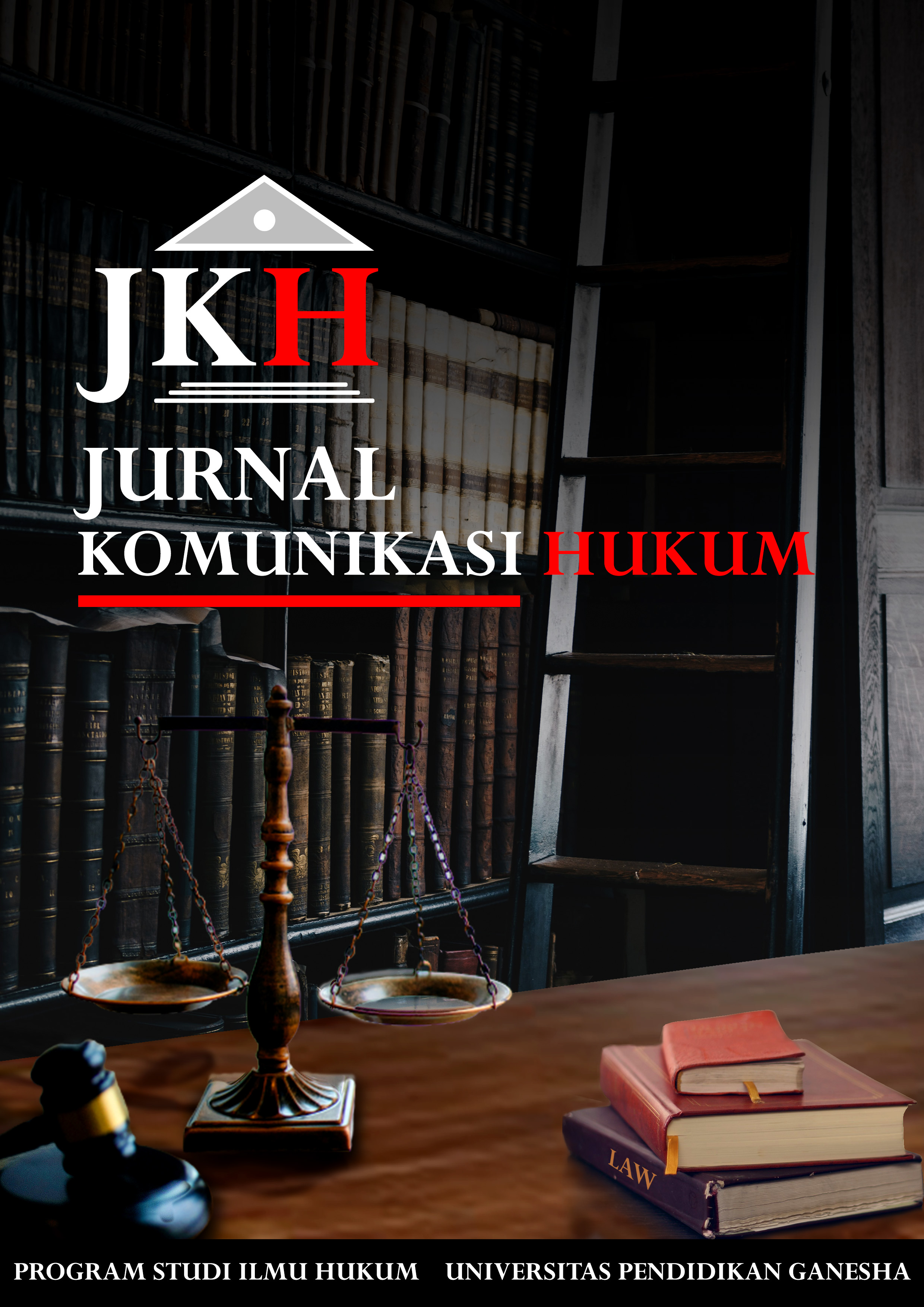INTERNATIONAL LAW AND THE ROLE OF THE STATE OF INDONESIA IN ASEAN AS A CONFLICT MEDIUM ON SOUTH CHINA SEA ISSUES
DOI:
https://doi.org/10.23887/jkh.v8i1.47022Abstract
This study discusses the role of Indonesia as a conflict mediator on the issue of the development of problems related to the sovereignty conflict of China which claims most of the South China Sea zone. This problem received intervention from a third country, one of which was the United States. Indonesia and other ASEAN member countries that claim parts of the South China Sea against China's policies are still in the discussion process and in the process of signing the draft SCS Code of Conduct with China.
Downloads
Published
Versions
- 2022-10-24 (2)
- 2022-02-01 (1)
How to Cite
Issue
Section
License
Authors who publish with this journal agree to the following terms:- Authors retain copyright and grant the journal right of first publication with the work simultaneously licensed under a Creative Commons Attribution License that allows others to share the work with an acknowledgement of the work's authorship and initial publication in this journal.
- Authors are able to enter into separate, additional contractual arrangements for the non-exclusive distribution of the journal's published version of the work (e.g., post it to an institutional repository or publish it in a book), with an acknowledgement of its initial publication in this journal.
- Authors are permitted and encouraged to post their work online (e.g., in institutional repositories or on their website) prior to and during the submission process, as it can lead to productive exchanges, as well as earlier and greater citation of published work (See The Effect of Open Access).
Authors who publish with this journal agree to the following terms:
- Authors retain copyright and grant the journal right of first publication, with the work [SPECIFY PERIOD OF TIME] after publication simultaneously licensed under aCreative Commons Attribution License that allows others to share the work with an acknowledgement of the work's authorship and initial publication in this journal.
- Authors are able to enter into separate, additional contractual arrangements for the non-exclusive distribution of the journal's published version of the work (e.g., post it to an institutional repository or publish it in a book), with an acknowledgement of its initial publication in this journal.
- Authors are permitted and encouraged to post their work online (e.g., in institutional repositories or on their website) prior to and during the submission process, as it can lead to productive exchanges, as well as earlier and greater citation of published work (See The Effect of Open Access).












